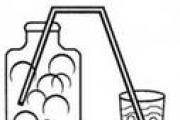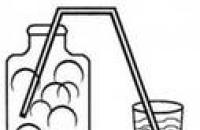
Answers to popular questions
Is it possible to smoke in a summer cafe?
It is forbidden. This is the position of Rospotrebnadzor, outlined in letter dated June 18, 2014 N 01/6906-14-25. In establishing this ban, the regulatory authority proceeded from the fact that both the veranda and the terrace of the summer cafe are also used to provide catering services, and therefore are part of the premises.
Where can you smoke at the airport?
At the Airport you can smoke in a special isolated smoking room, which is equipped with an exhaust hood, an ashtray and meets all the requirements of Federal Law 15 on the ban on smoking in public places. Such smoking rooms are equipped at most airports in the world, including Russian ones: Domodedovo, Vnukovo, Pulkovo. If the smoking room is closed, then smoking is allowed no closer than 15 meters from the airport.
Is it possible to smoke on the balcony of your apartment?
No restrictions have yet been established on smoking on the balcony of your own apartment, although such initiatives arise from time to time. However, if the smoke from a smoker neighbor prevents one from living normally, a citizen has the right to file a civil lawsuit against him demanding compensation for damage. In court, you will have to prove that your neighbor’s smoking is harmful to health and creates obstacles to the normal use of the living space. To record violations of sanitary standards, you can invite specialists from Rospotrebnadzor. It will take a lot of time to collect all the necessary evidence, and the prospects for a claim are vague, but there is still such a possibility in the law.
Where you can't smoke according to the new law 2017
Smoking is prohibited The Russian government has taken a particularly close approach to solving the issue of smoking in public places in recent years. Such measures were introduced not only as a way to combat smoking, which causes disapproval from smokers, but also as a concern for the health of non-smoking citizens in public places, whose rights smokers must also take into account.
The first restrictions came into force back in 2013, and every year the narrowing of the boundaries of smoking areas becomes more significant. The reason for such harsh control was statistics. According to the latest data, every year about half a million Russian citizens die due to diseases caused by active or passive smoking.
At the moment, the sharp negativity caused by the adoption of the smoking ban resolution has gradually faded away. But experts say that positive changes towards improving the health of the country's population will become noticeable only after at least five years.
Here is a list of places where smoking is strictly prohibited by law.
Where you can't smoke according to the new law of 2017
The list of prohibited smoking areas is gradually expanding, at the moment it looks like this:
Smoking is strictly prohibited throughout various educational institutions. This includes schools, secondary specialized and higher education institutions. Smoking is not allowed on the territory of sports and cultural institutions.
The ban was also introduced on the territory of health-improving institutions, including clinics, hospitals, and sanatoriums.
The restrictions affect all types of public transport, including airplanes, ships, intercity and long-distance trains, buses, and so on. The same applies to railway and bus stations, airports and ports, metro stations and trains, as well as at least 15 meters from the station exit.
Smoking is prohibited in buildings or on public service premises. That is, State Pension Fund branches, social security services, social service centers.
In the premises and on the territories of departments of government agencies and authorities. This includes courts and prefectures. Various ministries, departments, agencies and so on.
Smoking in the workplace and other work areas is also subject to restrictions.
Smoking is strictly prohibited in elevators and stairwells in residential buildings.
Smoking is not allowed on beaches and playgrounds.
Gas stations are also on the list of prohibited smoking areas.
The ban applies to dormitories and any places of temporary residence (hotels).
Despite special protests from smokers, the ban also affected bars, restaurants and cafes.
The list also included premises of consumer services (various workshops, ateliers, and so on).
According to Rospotrebnadzor, in 2017 alone, Russian residents were fined more than 60 million rubles for smoking in unauthorized places and other violations.
Passive smoking causes significant harm to the health of surrounding non-smokers. Therefore, the law quite seriously limited the rights of smokers in public places, thereby providing an opportunity for non-smokers to maintain their health and protecting the younger generation from addiction.
Where you can't smoke in Russia
The smoking ban law came out several years ago, but was fully operational and came into force only in 2017. Its action is aimed at protecting the health of non-smoking citizens and preventing the spread of tobacco among minors.
The adoption of the law is directly related to Russia’s ratification of the World Health Organization Convention on Tobacco Control.
The document clearly states places where smoking is prohibited by law:
- gas stations;
- public beaches;
- playgrounds;
- elevators and entrances in residential buildings;
- workplaces;
- premises of public authorities;
- metro;
- train stations;
- airports;
- social services premises;
- sea and river ports;
- public transport;
- educational institutions;
- medical institutions;
- sports objects;
- cultural sites;
- kindergartens;
- catering establishments;
- hotels and hostels;
- the shops;
- covered markets;
- premises of household services.
In all places where smoking is prohibited, a special sign prohibiting smoking must be placed. If a person, despite the prohibition sign, still decides to smoke, he risks receiving an impressive fine. All institutions that do not have a prohibition sign are punished by law.
Fine for using tobacco products in prohibited areas
The smoking ban law is represented by 25 articles, which date back to December 2016. Of these, the most detailed information about penalties is in Article 6.
Article 6. 23 Federal Law 15. Provides for punishment in the form of a fine of 1 thousand to 2 thousand rubles in case of attracting minor children to smoke.
These actions include the purchase of cigarettes, joint smoking with children under the age of majority, etc. If the same smoking products are purchased by parents for children under 18 years of age, then penalties are applied to the parents and amount to 2-3 thousand rubles.
Article 6
. 24
Federal Law 15. Provides penalties for the use of tobacco products in public places and ranges from 500 to 1 thousand rubles. A separate article includes punishment for smoking in places specially designated for children - in this case the penalty will be 2-3 thousand rubles.
Article 6. 25
Federal Law 15. Provides penalties for ignoring restrictions provided by law and the absence of special prohibitory signs for individual entrepreneurs, officials and legal entities. The amount of punishment varies from 10 thousand to 90 thousand rubles.
A special place for smoking on the street must have sufficient lighting at night, an ashtray and an appropriate sign. In enclosed spaces, the smoking area must be closed, have an ashtray, a fire extinguisher, an appropriate “Smoking Area” sign, artificial lighting and a ventilation system.
The model of the ventilation device must ensure complete assimilation of polluted air and prevent the penetration of smoke into adjacent rooms.

To prevent tobacco smoking, the population is educated about the dangers of smoking and tobacco smoke. It is prohibited to show smoking in any theatrical productions, cartoons and other programs for children, as well as for adults, except for programs where a cigarette is required to reveal the artistic intent.
Advertising that encourages the use of tobacco is not permitted. Manufacturers are required to indicate on cigarette packs the detailed composition of the substances they contain and warn about the dangers of smoking with an appropriate slogan. The sale of tobacco-containing products to adolescents under 18 years of age is strictly prohibited. For this, a fine of up to 100 thousand rubles is provided for enterprises and up to 50 thousand for private entrepreneurs.
Since 2018, not only sellers, but their parents are responsible for selling cigarettes to minors. For sponsorship of advertising and production of tobacco - a fine of 80-150 thousand rubles. At the municipal level, management has the authority to further introduce a smoking ban in some places.
Tobacco use areas
It is not prohibited to use tobacco products on the street. The condition for this is that the smoker is 15 meters away from all objects where smoking is prohibited. It is allowed to use tobacco products in their own houses and apartments, on their balconies and terraces.
As an exception, you can smoke in apartment buildings and on long-distance vessels, if these places are equipped with everything necessary and have sufficient ventilation.
It is legal to use tobacco products in your own car and in specially designated smoking areas. You can smoke at city and intercity transport stops.
It is not prohibited to use tobacco products at work in smoking areas, but only with the permission of the enterprise management.
There is no official ban on the use of electronic cigarettes in Russia.
The law does not apply to the use of hookahs in cafes and bars, but only if they are located in open areas.
Monitoring compliance with the law banning smoking in public places is provided by police officers.
If a violation of the regulation is detected in a closed space, then the Fire Service or Rospotrebnadzor has the right to impose a fine by law. In July 2018, Parts 2 and 4 of Article 18 of Federal Law 15 will come into force. They will contribute to even stricter control over the wholesale and retail sale of cigarettes.
Article 1. Subject of regulation of this Federal Law
This Federal Law, in accordance with the Framework Convention of the World Health Organization on Tobacco Control, regulates relations arising in the field of protecting the health of citizens from the effects of environmental tobacco smoke and the consequences of tobacco consumption.
Article 2. Basic concepts used in this Federal Law
1. For the purposes of this Federal Law, the following basic concepts are used:
1) smoking tobacco - the use of tobacco products for the purpose of inhaling smoke arising from their smoldering;
2) ambient tobacco smoke - tobacco smoke contained in the atmospheric air of the place in which tobacco smoking is or was previously carried out, including tobacco smoke exhaled by a person smoking tobacco;
3) consequences of tobacco consumption - harm to human life or health, harm to the environment due to tobacco consumption and exposure to environmental tobacco smoke, as well as associated medical, demographic, socio-economic consequences;
4) tobacco consumption - smoking tobacco, sucking, chewing, sniffing tobacco products;
5) tobacco sponsorship - any type of contribution to any event, activity or individual, the purpose, effect or likely effect of which is to promote the sale of a tobacco product or the use of tobacco directly or indirectly;
6) tobacco organizations - legal entities, regardless of the organizational and legal form, carrying out the production, movement across the customs border of the Customs Union within the EurAsEC or across the State border of the Russian Federation with member states of the Customs Union within the EurAsEC of tobacco products, or organizations recognized in accordance with with the legislation of the Russian Federation, affiliates of these legal entities, subsidiaries and dependent organizations, associations of such entities, as well as organizations created by such entities. For the purposes of this Federal Law, individual entrepreneurs engaged in the production and movement of tobacco products across the customs border of the Customs Union within the EurAsEC or across the State border of the Russian Federation with member states of the Customs Union within the EurAsEC are treated as tobacco organizations.
2. Other concepts are used in this Federal Law in the meanings defined by the Framework Convention of the World Health Organization on Tobacco Control, Federal Law of December 22, 2008 N 268-FZ “Technical Regulations for Tobacco Products”, Federal Law of November 21, 2011 N 323-FZ "On the fundamentals of protecting the health of citizens in the Russian Federation", Federal Law of December 28, 2009 N 381-FZ "On the fundamentals of state regulation of trade activities in the Russian Federation".
Article 3. Legislation in the field of protecting the health of citizens from the effects of environmental tobacco smoke and the consequences of tobacco consumption
1. Legislation in the field of protecting the health of citizens from the effects of second hand tobacco smoke and the consequences of tobacco consumption is based on the Constitution of the Russian Federation and consists of this Federal Law, other federal laws and other regulatory legal acts of the Russian Federation adopted in accordance with them, laws and other regulatory legal acts acts of the constituent entities of the Russian Federation.
2. If an international treaty of the Russian Federation establishes rules other than those provided for by this Federal Law, the rules of the international treaty of the Russian Federation apply.
Article 4. Basic principles of protecting the health of citizens from the effects of environmental tobacco smoke and the consequences of tobacco consumption
The basic principles of protecting the health of citizens from the effects of environmental tobacco smoke and the consequences of tobacco consumption are:
1) compliance with the rights of citizens in the field of protecting the health of citizens from the effects of environmental tobacco smoke and the consequences of tobacco consumption;
2) prevention of morbidity, disability, premature mortality of the population associated with exposure to environmental tobacco smoke and tobacco consumption;
3) responsibility of state authorities and local governments, individual entrepreneurs and legal entities for ensuring the rights of citizens in the field of protecting the health of citizens from the effects of environmental tobacco smoke and the consequences of tobacco consumption;
4) a systematic approach to the implementation of measures aimed at preventing exposure to second-hand tobacco smoke and reducing tobacco consumption, continuity and consistency of their implementation;
5) priority of protecting the health of citizens over the interests of tobacco organizations;
6) ensuring international cooperation of the Russian Federation in the field of protecting the health of citizens from the effects of environmental tobacco smoke and the consequences of tobacco consumption;
7) interaction between state authorities, local governments, citizens, including individual entrepreneurs, and legal entities not associated with tobacco organizations;
8) openness and independence in assessing the effectiveness of the implementation of measures aimed at preventing exposure to second-hand tobacco smoke and reducing tobacco consumption;
9) informing the population about the dangers of tobacco consumption and the harmful effects of environmental tobacco smoke;
10) compensation for harm caused to the life or health, property of a citizen, including the property of an individual entrepreneur, or a legal entity due to violation of legislation in the field of protecting the health of citizens from the effects of environmental tobacco smoke and the consequences of tobacco consumption.
Article 5. Powers of federal government bodies in the field of protecting the health of citizens from the effects of second hand tobacco smoke and the consequences of tobacco consumption
The powers of federal government bodies in the field of protecting the health of citizens from the effects of environmental tobacco smoke and the consequences of tobacco consumption include:
1) implementation of a unified state policy in the field of protecting the health of citizens from the effects of environmental tobacco smoke and the consequences of tobacco consumption;
2) protection of human and civil rights in the field of protecting the health of citizens from the effects of environmental tobacco smoke and the consequences of tobacco consumption;
3) ensuring the organization of medical care to citizens aimed at stopping tobacco consumption, treating tobacco addiction and the consequences of tobacco consumption, in federal medical organizations in accordance with legislation in the field of health protection;
4) development and implementation of measures to protect the health of citizens from the effects of environmental tobacco smoke and the consequences of tobacco consumption, inclusion of these measures in the prescribed manner in federal target programs in the field of protecting and promoting the health of citizens, in the state health care development program;
5) coordination of the activities of federal executive authorities, executive authorities of constituent entities of the Russian Federation in the field of protecting the health of citizens from the effects of environmental tobacco smoke and the consequences of tobacco consumption;
6) organization and implementation of state control in the field of protecting the health of citizens from the effects of environmental tobacco smoke and the consequences of tobacco consumption;
7) international cooperation of the Russian Federation, including the conclusion of international treaties of the Russian Federation, in the field of protecting the health of citizens from the effects of environmental tobacco smoke and the consequences of tobacco consumption;
8) monitoring and assessing the effectiveness of the implementation of measures aimed at preventing the effects of second hand tobacco smoke and reducing tobacco consumption, as well as informing, on the basis of the received data, executive authorities of the constituent entities of the Russian Federation, local governments and the population about the scale of tobacco consumption in the territory of the Russian Federation, about implemented and (or) planned measures to reduce its consumption.
Article 6. Powers of state authorities of the constituent entities of the Russian Federation in the field of protecting the health of citizens from the effects of environmental tobacco smoke and the consequences of tobacco consumption
The powers of state authorities of the constituent entities of the Russian Federation in the field of protecting the health of citizens from the effects of environmental tobacco smoke and the consequences of tobacco consumption include:
1) protection of human and civil rights in the field of protecting the health of citizens from the effects of environmental tobacco smoke and the consequences of tobacco consumption in the territories of the constituent entities of the Russian Federation;
2) development and implementation of measures to protect the health of citizens from the effects of environmental tobacco smoke and the consequences of tobacco consumption in the territories of the constituent entities of the Russian Federation;
3) coordination of the activities of executive bodies of state power of the constituent entities of the Russian Federation in the field of protecting the health of citizens from the effects of environmental tobacco smoke and the consequences of tobacco consumption, subjects of the state healthcare system, municipal healthcare system and private healthcare system in the territories of the constituent entities of the Russian Federation to provide citizens with medical care directed to stop tobacco consumption, treat tobacco addiction and the consequences of tobacco consumption;
4) participation in monitoring and evaluating the effectiveness of the implementation of measures aimed at preventing the effects of secondhand tobacco smoke and reducing tobacco consumption in the territories of the constituent entities of the Russian Federation, as well as informing local government bodies and the population about the scale of tobacco consumption in the territory of the corresponding constituent entity of the Russian Federation, about ongoing and (or) planned measures to reduce tobacco consumption;
5) ensuring the organization of medical care to citizens aimed at stopping tobacco consumption, treating tobacco addiction and the consequences of tobacco consumption, in medical organizations of the constituent entities of the Russian Federation in accordance with legislation in the field of health protection;
6) taking additional measures aimed at protecting the health of citizens from the effects of environmental tobacco smoke and the consequences of tobacco consumption.
Article 7. Powers of local government bodies in the field of protecting the health of citizens from the effects of second hand tobacco smoke and the consequences of tobacco consumption
The powers of local government bodies in the field of protecting the health of citizens from the effects of environmental tobacco smoke and the consequences of tobacco consumption include:
1) participation in the implementation of measures to protect the health of citizens from the effects of environmental tobacco smoke and the consequences of tobacco consumption in the territories of municipalities;
2) ensuring the organization of provision of medical care to citizens aimed at stopping tobacco consumption, treating tobacco addiction and the consequences of tobacco consumption, in medical organizations of the municipal health care system in the event of the transfer of relevant powers in accordance with legislation in the field of health care;
3) informing the population about the scale of tobacco consumption in the territory of the relevant municipality, about ongoing and (or) planned measures to reduce its consumption, including on the basis of monitoring and evaluating the effectiveness of the implementation of measures aimed at preventing exposure to environmental tobacco smoke and reducing tobacco consumption .
Article 8. Interaction of state authorities and local governments with tobacco organizations
1. When interacting with individual entrepreneurs and legal entities in the field of protecting the health of citizens from the effects of environmental tobacco smoke and the consequences of tobacco consumption, state authorities and local governments are obliged to ensure accountability and transparency of such interaction.
2. Interaction between state authorities and local governments with tobacco organizations on issues that are the subject of regulation of this Federal Law must be carried out publicly, and appeals from tobacco organizations sent in writing or in the form of electronic documents, and responses to these appeals must be posted on official websites of state authorities and local governments on the Internet information and telecommunications network.
Article 9. Rights and obligations of citizens in the field of protecting the health of citizens from the effects of environmental tobacco smoke and the consequences of tobacco consumption
1. In the field of protecting the health of citizens from the effects of environmental tobacco smoke and the consequences of tobacco consumption, citizens have the right to:
1) a favorable living environment without environmental tobacco smoke and health protection from the effects of environmental tobacco smoke and the consequences of tobacco consumption;
2) medical assistance aimed at stopping tobacco consumption and treating tobacco addiction;
3) obtaining, in accordance with the legislation of the Russian Federation, from state authorities, local governments, individual entrepreneurs, and legal entities, information about activities aimed at preventing exposure to second-hand tobacco smoke and reducing tobacco consumption;
4) exercising public control over the implementation of measures aimed at preventing exposure to second-hand tobacco smoke and reducing tobacco consumption;
5) submitting proposals to state authorities and local self-government bodies to ensure the protection of the health of citizens from the effects of environmental tobacco smoke and the consequences of tobacco consumption;
6) compensation for harm caused to their life or health, property as a result of violation by other citizens, including individual entrepreneurs, and (or) legal entities of legislation in the field of protecting the health of citizens from the effects of environmental tobacco smoke and the consequences of tobacco consumption.
2. In the field of protecting the health of citizens from the effects of environmental tobacco smoke and the consequences of tobacco consumption, citizens are obliged to:
2) take care of the formation of a negative attitude towards tobacco consumption in children, as well as the inadmissibility of their involvement in the process of tobacco consumption;
3) not to carry out actions that entail a violation of the rights of other citizens to a favorable living environment without second-hand tobacco smoke and to protect their health from the effects of second-hand tobacco smoke and the consequences of tobacco consumption.
Article 10. Rights and obligations of individual entrepreneurs and legal entities in the field of protecting the health of citizens from the effects of environmental tobacco smoke and the consequences of tobacco consumption
1. In the field of protecting the health of citizens from the effects of environmental tobacco smoke and the consequences of tobacco consumption, individual entrepreneurs and legal entities have the right:
1) receive, in accordance with the legislation of the Russian Federation, from state authorities, local governments, bodies authorized to exercise state control in the field of protecting the health of citizens from the effects of second-hand tobacco smoke and the consequences of tobacco consumption, information on measures aimed at preventing the effects of second-hand tobacco smoke and reducing tobacco consumption;
2) take part in the development and implementation of measures to protect the health of citizens from the effects of environmental tobacco smoke and the consequences of tobacco consumption;
3) establish a ban on smoking tobacco in the territories and premises used to carry out their activities, and also, in compliance with labor legislation, apply incentive measures aimed at stopping tobacco consumption by employees.
2. In the field of protecting the health of citizens from the effects of environmental tobacco smoke and the consequences of tobacco consumption, individual entrepreneurs and legal entities are obliged to:
1) comply with legislation in the field of protecting the health of citizens from the effects of environmental tobacco smoke and the consequences of tobacco consumption;
2) monitor compliance with legislation in the field of protecting the health of citizens from the effects of environmental tobacco smoke and the consequences of tobacco consumption in the territories and premises used to carry out their activities;
3) ensure the rights of workers to a favorable living environment without environmental tobacco smoke and the protection of their health from the effects of environmental tobacco smoke and the consequences of tobacco consumption;
4) provide citizens with information about activities implemented by these individual entrepreneurs and legal entities and aimed at preventing exposure to second-hand tobacco smoke and reducing tobacco consumption.
Article 11. Organization of implementation of measures aimed at preventing exposure to second-hand tobacco smoke and reducing tobacco consumption
In order to prevent the occurrence of diseases associated with exposure to environmental tobacco smoke and tobacco consumption, and to reduce tobacco consumption, the following measures are being taken:
1) establishing a ban on smoking tobacco in certain areas, premises and facilities;
2) price and tax measures aimed at reducing demand for tobacco products;
3) regulation of the composition of tobacco products and regulation of disclosure of the composition of tobacco products, establishing requirements for packaging and labeling of tobacco products;
4) educating the population and informing them about the dangers of tobacco consumption and the harmful effects of environmental tobacco smoke;
6) providing citizens with medical assistance aimed at stopping tobacco consumption, treating tobacco addiction and the consequences of tobacco consumption;
7) prevention of illegal trade in tobacco products and tobacco products;
8) restriction of trade in tobacco products and tobacco products;
9) establishing a ban on the sale of tobacco products to minors and minors, a ban on the consumption of tobacco by minors, a ban on the involvement of children in the process of tobacco consumption.
Article 12. Prohibition of tobacco smoking in certain territories, premises and facilities
1. To prevent the impact of environmental tobacco smoke on human health, smoking tobacco is prohibited (except for the cases established by part 2 of this article):
1) in territories and premises intended for the provision of educational services, services by cultural institutions and institutions of youth affairs bodies, services in the field of physical culture and sports;
2) in territories and premises intended for the provision of medical, rehabilitation and sanatorium-resort services;
3) on long-distance trains, on ships on long voyages, when providing passenger transportation services;
4) on aircraft, on all types of public transport (public transport) of urban and suburban traffic (including on ships when transporting passengers on intracity and suburban routes), in places in the open air at a distance of less than fifteen meters from the entrances to premises of railway stations, bus stations, airports, seaports, river ports, metro stations, as well as at metro stations, in the premises of railway stations, bus stations, airports, seaports, river ports, intended for the provision of passenger transportation services;
5) in premises intended for the provision of housing services, hotel services, temporary accommodation services and (or) provision of temporary accommodation;
6) in premises intended for the provision of personal services, trade services, public catering, market premises, and non-stationary retail facilities;
7) in the premises of social services;
8) in premises occupied by state authorities, local government bodies;
9) at workplaces and in work areas organized on premises;
10) in elevators and common areas of apartment buildings;
11) on playgrounds and within the boundaries of areas occupied by beaches;
12) on passenger platforms used exclusively for boarding and disembarking passengers from trains during their transportation in suburban services;
13) at gas stations.
2. Based on the decision of the owner of the property or another person authorized by the owner of the property, smoking tobacco is allowed:
1) in specially designated places in the open air or in isolated rooms that are equipped with ventilation systems and are organized on ships on long voyages when providing services for the transportation of passengers;
2) in specially designated places in the open air or in isolated common areas of apartment buildings that are equipped with ventilation systems.
3. Requirements for the allocation and equipment of special places in the open air for smoking tobacco, for the allocation and equipment of isolated premises for smoking tobacco are established by the federal executive body exercising the functions of developing state policy and legal regulation in the field of construction, architecture, urban planning and housing and communal services, together with the federal executive body exercising the functions of developing and implementing state policy and legal regulation in the field of healthcare, and must ensure compliance with the hygienic standards established in accordance with the sanitary legislation of the Russian Federation for the content of substances emitted in the atmospheric air during the consumption of tobacco products.
4. For persons in pre-trial detention centers, other places of forced detention or serving sentences in correctional institutions, protection is provided from the effects of environmental tobacco smoke in the manner established by the federal executive body authorized by the Government of the Russian Federation in agreement with the federal executive body exercising the functions on the development and implementation of public policy and legal regulation in the field of healthcare.
5. To designate territories, buildings and objects where smoking tobacco is prohibited, a smoking ban sign is accordingly placed, the requirements for which and for the placement procedure are established by the federal executive body authorized by the Government of the Russian Federation.
6. State authorities of the constituent entities of the Russian Federation have the right to establish additional restrictions on tobacco smoking in certain public places and indoors.
Article 13. Price and tax measures aimed at reducing demand for tobacco products
1. In order to reduce the demand for tobacco products, measures are taken to increase excise taxes on tobacco products in accordance with the legislation of the Russian Federation on taxes and fees, and other measures of government influence on the price level of these products may also be implemented.
2. Measures of government influence on the price level of tobacco products are carried out by establishing minimum retail prices for such products. The minimum retail price of tobacco products is the price below which a unit of consumer packaging (pack) of tobacco products cannot be sold to consumers by retail, catering, service industry enterprises, as well as individual entrepreneurs.
3. Minimum retail prices are set at seventy-five percent of the maximum retail prices determined in the manner established by the Tax Code of the Russian Federation.
4. The procedure for publishing minimum retail prices for tobacco products is established by the federal executive body exercising the functions of developing state policy and legal regulation in the field of budgetary and tax activities.
5. The sale of tobacco products at a price that is lower than the minimum retail prices and higher than the maximum retail prices established in accordance with the legislation of the Russian Federation on taxes and fees is prohibited.
Article 14. Regulation of the composition of tobacco products and regulation of disclosure of the composition of tobacco products, establishing requirements for packaging and labeling of tobacco products
Regulation of the composition of tobacco products and regulation of the disclosure of the composition of tobacco products, establishing requirements for packaging and labeling of tobacco products are carried out in accordance with the legislation of the Russian Federation on technical regulation.
Article 15. Educating the population and informing them about the dangers of tobacco consumption and the harmful effects of environmental tobacco smoke
1. In order to reduce the demand for tobacco and tobacco products, prevent diseases associated with tobacco consumption, develop a responsible attitude towards health and a negative attitude towards tobacco consumption, the population is educated and informed about the dangers of tobacco consumption and the harmful effects of environmental tobacco smoke, which include includes providing information:
1) about the benefits of stopping tobacco consumption;
2) about the negative medical, demographic and socio-economic consequences of tobacco consumption;
3) about the tobacco industry.
2. Educating the population about the dangers of tobacco consumption and the harmful effects of environmental tobacco smoke is carried out in the family, in the process of education and training in educational organizations, in medical organizations, as well as by employers in the workplace.
3. The main directions and goals of educating the population are determined within the framework of the information and communication strategy to combat tobacco consumption, approved by the federal executive body exercising the functions of developing and implementing state policy and legal regulation in the field of healthcare.
4. Educating the population and informing them about the dangers of tobacco consumption and the harmful effects of environmental tobacco smoke are carried out, in particular, through the use of the Internet information and telecommunications network, as well as “hot lines” that promote the cessation of tobacco consumption and the treatment of tobacco addiction, created and functioning in the manner established by the federal executive body exercising the functions of developing and implementing state policy and legal regulation in the field of healthcare.
5. State authorities of the constituent entities of the Russian Federation may provide for the creation of “hot lines” or the use of the information and telecommunications network “Internet” for requests from citizens, including individual entrepreneurs, and legal entities regarding violations of legislation in the field of protecting the health of citizens from the effects of environmental tobacco smoke and the consequences of tobacco consumption.
6. Informing the population about the dangers of tobacco consumption and the harmful effects of environmental tobacco smoke is carried out by state authorities and local governments, including through information campaigns in the media.
7. Materials prepared by government bodies of the constituent entities of the Russian Federation to inform the population about the dangers of tobacco consumption and the harmful effects of environmental tobacco smoke on the territory of the corresponding constituent entity of the Russian Federation are subject to agreement with the federal executive body exercising the functions of developing and implementing state policy and regulatory legal regulation in the field of healthcare, in the manner established by it.
1. In order to reduce the demand for tobacco and tobacco products, the following is prohibited:
a) distribution of tobacco and tobacco products among the population free of charge, including in the form of gifts;
b) applying discounts on the price of tobacco products by any means, including through the issuance of coupons and vouchers;
c) the use of a trademark that serves to individualize tobacco products on other types of goods that are not tobacco products, in the production of such goods, as well as wholesale and retail trade in goods that are not tobacco products, but on which a trademark is used that serves to individualization of tobacco products;
d) use and imitation of tobacco products in the production of other types of goods that are not tobacco products, in the wholesale and retail trade of such goods;
e) demonstration of tobacco products and the process of tobacco consumption in newly created audiovisual works intended for children, including television and video films, in theatrical performances, in radio, television, video and newsreel programs, as well as public performance, communication on air, by cable and any other use of the specified works, performances, programs in which tobacco products and the process of tobacco consumption are demonstrated;
f) organizing and conducting events (including lotteries, competitions, games), the condition for participation in which is the purchase of tobacco products;
g) organization and conduct of cultural, physical education, sports and other public events, the purpose, result or likely result of which is a direct or indirect incentive to purchase tobacco products and (or) consume tobacco (including the organization and conduct of mass events in which tobacco products are set as prizes);
h) use of trade names, trademarks and service marks, as well as commercial designations belonging to tobacco organizations, when organizing and carrying out charitable activities;
2) tobacco sponsorship.
2. Demonstration of tobacco products and the process of tobacco consumption in newly created and intended for adults audiovisual works, including television and video films, in theatrical performances, in radio, television, video and newsreel programs, as well as public performance , broadcasting, cable broadcasting and any other use of the specified works, performances, programs in which tobacco products and the process of tobacco consumption are demonstrated, except in cases where such an action is an integral part of the artistic concept.
3. When demonstrating audiovisual works, including television and video films, television, video and newsreel programs in which tobacco products and the process of tobacco consumption are demonstrated, the broadcaster or organizer of the demonstration must ensure the broadcast of social advertising about the dangers of tobacco consumption immediately before the start or during the demonstration of such a work, such a program.
4. Demonstration of tobacco products and the process of tobacco consumption is allowed when informing the population about the dangers of tobacco consumption and the harmful effects of environmental tobacco smoke in the media during information campaigns.
Article 17. Providing medical assistance to citizens aimed at stopping tobacco consumption, treating tobacco addiction and the consequences of tobacco consumption
1. Persons who consume tobacco and apply to medical organizations are provided with medical assistance aimed at stopping tobacco consumption, treating tobacco addiction and the consequences of tobacco consumption.
2. Provision of medical assistance to citizens aimed at stopping tobacco consumption, including prevention, diagnosis and treatment of tobacco addiction and the consequences of tobacco consumption, by medical organizations of the state healthcare system, municipal healthcare system and private healthcare system is carried out in accordance with the program of state guarantees of free provision of medical care to citizens help.
3. Medical care aimed at stopping tobacco consumption, treating tobacco addiction and the consequences of tobacco consumption is provided on the basis of standards of medical care and in accordance with the procedure for providing medical care.
4. The attending physician is obliged to give a patient who has applied for medical care to a medical organization, regardless of the reason for the request, recommendations to stop using tobacco and provide the necessary information about the medical care that can be provided.
Article 18. Prevention of illicit trade in tobacco products and tobacco products
1. Prevention of illicit trade in tobacco products and tobacco products includes:
1) ensuring accounting of the production of tobacco products, movement across the customs border of the Customs Union within the EurAsEC or across the State border of the Russian Federation with member states of the Customs Union within the EurAsEC of tobacco products and tobacco products, wholesale and retail trade in tobacco products and tobacco products;
2) tracking the turnover of production equipment, the movement and distribution of tobacco products and tobacco products;
3) suppression of cases of illegal trade in tobacco products and tobacco products and bringing to justice, including confiscation of counterfeit tobacco products illegally transported across the customs border of the Customs Union within the EurAsEC or across the State border of the Russian Federation with member states of the Customs Union within the EurAsEC and tobacco products, equipment on which counterfeit tobacco products were produced, their destruction in accordance with the legislation of the Russian Federation.
2. Accounting for the production of tobacco products, movement across the customs border of the Customs Union within the EurAsEC or across the State border of the Russian Federation with member states of the Customs Union within the EurAsEC of tobacco products and tobacco products, wholesale and retail trade in tobacco products and tobacco products, tracking turnover production equipment, movement and distribution of tobacco products and tobacco products are carried out on the basis of customs and tax accounting data, systems for marking tobacco products with special and (or) excise stamps and manufacturers’ own accounting systems. The federal executive body that analyzes the information specified in this article and the procedure for exchanging information between regulatory authorities are determined by the Government of the Russian Federation.
3. In order to prevent illegal trade in tobacco products and tobacco products, each pack and each package of tobacco products is subject to mandatory labeling in accordance with the requirements of the legislation of the Russian Federation on technical regulation.
Article 19. Restrictions on trade in tobacco products and tobacco products
1. Retail trade of tobacco products is carried out in stores and pavilions. For the purposes of this article, a store is understood as a building or part thereof, specially equipped, intended for the sale of goods and provision of services to customers and provided with trading, utility, administrative and amenity premises, as well as premises for receiving, storing goods and preparing them for sale, under the pavilion refers to a building that has a sales area and is designed for one workplace or several workplaces.
2. If there are no shops or pavilions in the locality, trade in tobacco products in other retail establishments or delivery trade in tobacco products is permitted.
3. Retail trade in tobacco products is prohibited in retail establishments not provided for in parts 1 and 2 of this article, at fairs, exhibitions, through delivery and peddle trade, by distance selling, using vending machines and other methods, with the exception of delivery trade in the case provided for part 2 of this article.
4. Retail trade in tobacco products with display and demonstration of tobacco products in a retail facility is prohibited, except as provided for in Part 5 of this article.
5. Information about tobacco products offered for retail trade is brought to the attention of buyers by the seller in accordance with the legislation of the Russian Federation on the protection of consumer rights by posting on the sales floor a list of tobacco products sold, the text of which is made in letters of the same size in black on a white background and which compiled in alphabetical order, indicating the price of tobacco products sold without using any graphics or drawings. Demonstration of tobacco products to the buyer in a retail establishment may be carried out at his request after familiarization with the list of tobacco products sold, taking into account the requirements of Article 20 of this Federal Law.
6. Retail trade in cigarettes containing less than twenty pieces per unit of consumer packaging (pack), retail trade in cigarettes and cigarettes individually, tobacco products without consumer packaging, tobacco products packaged in the same consumer packaging with goods that are not tobacco are not allowed. products.
1) in territories and premises intended for the provision of educational services, services by cultural institutions, institutions of youth affairs bodies, services in the field of physical education and sports, medical, rehabilitation and sanatorium-resort services, on all types of public transport (public transport ) urban and suburban traffic (including on ships when transporting passengers on intracity and suburban routes), in premises occupied by state authorities and local governments;
2) at a distance of less than one hundred meters in a straight line, excluding artificial and natural barriers, from the nearest point bordering the territory intended for the provision of educational services;
3) in the territories and premises (except for duty-free shops) of railway stations, bus stations, airports, seaports, river ports, metro stations intended for the provision of passenger transportation services, in premises intended for the provision of housing services, hotel services , services for temporary accommodation and (or) provision of temporary residence, personal services.
Article 20. Prohibition of the sale of tobacco products to minors and minors, the consumption of tobacco by minors, as well as the involvement of children in the process of tobacco consumption
1. The sale of tobacco products to minors and minors, the involvement of children in the process of tobacco consumption by purchasing for them or transferring to them tobacco products or tobacco products, offering, demanding to use tobacco products or tobacco products in any way is prohibited.
2. If the person directly dispensing tobacco products (seller) has doubts about whether the person purchasing tobacco products (buyer) has reached the age of majority, the seller is obliged to request from the buyer an identification document (including an identification document of a foreign citizen or stateless persons in the Russian Federation) and allowing to establish the age of the buyer. The list of relevant documents is established by the federal executive body authorized by the Government of the Russian Federation.
3. The seller is obliged to refuse to sell tobacco products to the buyer if there are doubts about the buyer’s reaching the age of majority, and a document identifying the buyer and allowing to establish his age has not been presented.
4. Consumption of tobacco by minors is prohibited.
Article 21. State control in the field of protecting the health of citizens from the effects of environmental tobacco smoke and the consequences of tobacco consumption
State control in the field of protecting the health of citizens from the effects of environmental tobacco smoke and the consequences of tobacco consumption is carried out in accordance with the Federal Law of December 26, 2008 N 294-FZ “On the protection of the rights of legal entities and individual entrepreneurs in the implementation of state control (supervision) and municipal control "federal executive authorities exercising functions of control and supervision in the field of ensuring the sanitary and epidemiological well-being of the population, protecting consumer rights and the consumer market, control and supervision in the field of healthcare, special functions to combat smuggling, control and supervision of compliance with the legislation of the Russian Federation about advertising.
Article 22. Monitoring and evaluation of the effectiveness of the implementation of measures aimed at preventing exposure to second-hand tobacco smoke and reducing tobacco consumption
1. Monitoring and evaluating the effectiveness of the implementation of measures aimed at preventing exposure to second-hand tobacco smoke and reducing tobacco consumption include:
1) conducting scientific research aimed at studying the causes and consequences of tobacco consumption, actions to promote the sale and consumption of tobacco;
2) conducting sanitary and epidemiological studies of the scale of tobacco consumption;
3) establishing indicators of the health of citizens and the dynamics of reducing tobacco consumption for the development and implementation of measures to combat tobacco consumption.
2. Monitoring and evaluation of the effectiveness of the implementation of measures aimed at preventing the effects of second hand tobacco smoke and reducing tobacco consumption are carried out by the federal executive body exercising the functions of developing and implementing state policy and legal regulation in the field of healthcare, the federal executive body exercising functions of control and supervision in the field of ensuring the sanitary and epidemiological well-being of the population, protecting consumer rights and the consumer market, the federal executive body exercising the functions of developing state policy and legal regulation in the field of official statistical accounting, in the manner established by the Government of the Russian Federation .
3. Subjects of the Russian Federation participate in monitoring and assessing the effectiveness of the implementation of measures aimed at preventing the effects of second-hand tobacco smoke and reducing tobacco consumption, in accordance with the legislation of the constituent entities of the Russian Federation and on the basis of agreements on monitoring and assessing the effectiveness of the implementation of these measures with the federal body executive power, which carries out the functions of developing and implementing state policy and legal regulation in the field of healthcare.
4. Based on the results of monitoring and evaluation of the effectiveness of the implementation of measures aimed at preventing the effects of second-hand tobacco smoke and reducing tobacco consumption, the federal executive body, which carries out the functions of developing and implementing state policy and legal regulation in the field of healthcare, carries out:
1) development of measures to combat tobacco consumption to be included in federal target programs for protecting and promoting the health of citizens and in the state health care development program;
2) informing executive authorities of the constituent entities of the Russian Federation, local governments and the population about the scale of tobacco consumption in the territory of the Russian Federation and ongoing and (or) planned measures to reduce its consumption;
3) preparation and presentation of a report on the implementation by the Russian Federation of the World Health Organization Framework Convention on Tobacco Control.
Article 23. Liability for violation of this Federal Law
For violation of legislation in the field of protecting the health of citizens from the effects of environmental tobacco smoke and the consequences of tobacco consumption, disciplinary, civil, and administrative liability is established in accordance with the legislation of the Russian Federation.
Article 24. Recognition of legislative acts (certain provisions of legislative acts) of the Russian Federation as having lost force
Declare invalid:
1) Federal Law of July 10, 2001 N 87-FZ “On restricting tobacco smoking” (Collected Legislation of the Russian Federation, 2001, N 29, Art. 2942);
2) Federal Law of December 31, 2002 N 189-FZ “On introducing amendments to Article 10 of the Federal Law “On Restricting Tobacco Smoking” (Collected Legislation of the Russian Federation, 2003, N 1, Art. 4);
3) Article 50 of the Federal Law of January 10, 2003 N 15-FZ “On introducing amendments and additions to certain legislative acts of the Russian Federation in connection with the adoption of the Federal Law “On licensing of certain types of activities” (Collected Legislation of the Russian Federation, 2003, N 2 , Art. 167);
4) Federal Law of December 1, 2004 N 148-FZ “On Amendments to Articles 3 and 6 of the Federal Law “On Restricting Tobacco Smoking” (Collected Legislation of the Russian Federation, 2004, N 49, Art. 4847);
5) Article 2 of the Federal Law of July 26, 2006 N 134-FZ “On Amendments to Chapter 22 of Part Two of the Tax Code of the Russian Federation and Some Other Legislative Acts of the Russian Federation” (Collection of Legislation of the Russian Federation, 2006, N31, Art. 3433) .
Article 25. Entry into force of this Federal Law
1. This Federal Law comes into force on June 1, 2013, with the exception of provisions for which this article establishes other dates for their entry into force.
3. Clauses 3, 5, 6 and 12 of part 1 of article 12, part 3 of article 16, parts 1-5, clause 3 of part 7 of article 19 of this Federal Law come into force on June 1, 2014.
4. Clauses 1 and 2 of Part 1 and Part 2 of Article 18 of this Federal Law come into force on January 1, 2017.
President of Russian Federation
On June 1, 2013, with the exception of a few provisions, the Federal Law of the Russian Federation of February 23, 2013 No. 15-FZ (hereinafter referred to as the Law) came into force, prohibiting smoking in public places, sponsorship and advertising of tobacco, as well as the involvement of children in tobacco use. Due to the fact that since May 11, 2008, the Russian Federation has been a party to the World Health Organization Framework Convention on Tobacco Control, the adoption of the new law is the fulfillment of obligations to combat smoking and reduce mortality due to tobacco use at the international level. Naturally, the adoption of the “anti-tobacco” law, as it is also called, caused ambiguous opinion in society, because the new law affects many interests, starting with the powerful tobacco lobby and ending with the ordinary smoker.
The ban on smoking in a number of public places will be introduced gradually.
Let us remind you that from June 1, 2013 it will be prohibited to smoke in schools, universities, hospitals, clinics, sanatoriums, government buildings, municipalities, social service premises, elevators and entrances, airplanes, urban and suburban transport, inside and closer than 15 meters from entrances to train stations and airports, metro stations, at sports and cultural venues, workplaces and work areas organized indoors, on playgrounds and beaches (Law).
From June 1, 2014, the smoking ban will apply to long-distance trains, long-distance vessels, hotels, cafes and restaurants, markets and other retail facilities, platforms of commuter trains (clauses 3, 5, 6, 12 part 1 of the Law).
What consequences await smokers if they break the law?
It is obvious that a ban is effective only when it is supported by appropriate rules on liability for non-compliance. The adopted “anti-tobacco” law establishes disciplinary, civil and administrative liability (Law).
On May 14, 2013, the State Duma adopted in the first reading a bill on fines for violating the “anti-tobacco” law (the full name is the draft Federal Law “On Amendments to the Code of the Russian Federation on Administrative Offenses and the Federal Law “On Advertising” in connection with the adoption of the Federal Law" On protecting public health from the effects of environmental tobacco smoke and the consequences of tobacco consumption", No. 222563-6, hereinafter referred to as the Draft Law)
The bill provides for the following administrative fines (table):
Table. Administrative liability for violation of established prohibitions (Article 1 of the Draft Law)
Type of violation
| Type of punishment
|
Individual
| Entity
| Executive
|
Smoking tobacco in certain territories, premises and facilities prohibited by federal law
| Fine: 1000 – 1500 rubles.
|
|
|
Sale of tobacco products to minors
|
| Fine: 80,000 – 90,000 rubles;
| Fine: 8,000 – 10,000 rubles;
- confiscation of tobacco products
|
Tobacco sponsorship
|
| Fine: 80,000 – 150,000 rubles;
- or suspension of activities for up to 90 days
| Fine: 5000 – 7000 rubles.
|
Violation of prohibitions and restrictions on the demonstration of tobacco products and the process of tobacco consumption
| Fine: 2000 – 5000 rubles.
| Fine: 80,000 – 100,000 rubles.
| Fine: 8,000 – 10,000 rubles.
|
Violation of prohibitions and restrictions on the demonstration of tobacco products and the process of tobacco consumption in information products intended for minors
| Fine: 3000 – 5000 rubles.
| Fine: 80,000 – 100,000 rubles.
| Fine: 10,000 – 15,000 rubles.
|
|
|
| Fine: 100,000 – 500,000 rubles;
- confiscation of advertising products or suspension of activities for up to 90 days with confiscation of advertising products
| Fine: 5,000 – 20,000 rubles;
- confiscation of advertising materials
|
In the process of implementing the law, there will be practically no usual places for smoking; in fact, smoking will only be possible at home and on the street, where there is no legal ban. According to the Global Adult Tobacco Survey (GATS), conducted in 2009, in Russia almost 44 million people (39.1% of the adult population) are regular tobacco smokers.
As a result of a survey of our users on the topic: “In your opinion, will this ban “work” if it is planned to introduce administrative fines for violations (the corresponding bill was adopted in the first reading)?” it turned out that more than half of respondents (67% - red segment) believe that a smoking ban will not work, while 32% of users believe that such a ban will work (green segment), and 1% expressed indifference to this topic (yellow segment).
 |
Survey time: May 20-26, 2013
Location of the survey: Russia, all districts
Sample size: 528 respondents
|
With the introduction of a smoking ban, three questions automatically become relevant:
- among the smoking population: where will smoking be allowed without consequences?
- for employers: does their organization fall under the “double ban” or is it possible to organize special smoking areas and according to what technical requirements?
- for non-smoking citizens: where to turn if a smoker intentionally continues to violate the Law?
Where can you smoke without consequences? The principle of the rule of law states: a citizen is allowed everything except what is directly prohibited by law. Therefore, you can smoke where it is not prohibited by law. So, you can smoke only in specially designated places, in your own apartment or house and in your car.
To avoid administrative liability for smoking in prohibited places, we offer several recommendations:
1. You need to know the exact list of places where smoking is prohibited and adhere to it as much as possible.
2. If you are caught smoking in a prohibited place, then remember that on the territory of the Russian Federation there is a presumption of innocence (Part 2 of Article 1.5), therefore the burden of proof lies on the prosecution. Indisputable evidence confirming a violation will only be the circumstance if you are caught in the act. In addition, only an executive authority, a police officer or a local police officer can bring administrative liability. Witness testimony alone is not enough, and video cameras have not yet been installed in all playgrounds and stairwells.
3. In case of disagreement with the protocol on an administrative offense, the current legislation provides for the opportunity to challenge in court a decision, action (inaction) of a government body, local government body, official, state or municipal employee if you believe that your rights have been violated (Part 1 Art. 254).
4. Receiving and playing audio and video recordings may involve a violation of the privacy of citizens (Article 23). According to Part 2 of Art. 55 evidence obtained in violation of the law has no legal force and cannot be used as the basis for a court decision.
Is it possible to organize special smoking areas and what requirements should be followed? Which organizations will be subject to the “double ban”?
Based on the decision of the owner or another person authorized by the owner of the property, smoking tobacco is allowed in specially equipped isolated rooms (Part 2 of the Law). The arrangement of smoking rooms is not an obligation, but a right of the employer. And only if the owner of the premises does not mind. However, if the owner of an office building refuses to follow the lead of smoking employees, then the tenants will have to look for a new, more loyal landlord. Although many companies have similar rules even before the Law came into force. For example, Unilever has a global policy according to which in all rented or owned buildings, including industrial ones, special smoking areas must be equipped outside, and smoking is prohibited in the buildings. “At the same time, the agreement signed between our company and the business center clarifies that smoking in the business center is prohibited in principle - exceptions are specially designated places on the street,” notes Ekaterina Odintsova, senior manager for media relations and corporate communications of the group Unilever companies in Russia, Ukraine and Belarus. “We do not plan to organize special smoking rooms inside the office we rent in Moscow, since there are special places for smoking on the street. Smoking employees have a positive attitude towards the ban that has already been established today, so the new law will not affect their work in any way.”
Back in March of this year, the Ministry of Health of the Russian Federation published draft technical requirements for the allocation and equipment of special places in the open air for smoking tobacco and for the allocation and equipment of isolated rooms for smoking tobacco.
Draft orders and requirements for smoking premises and a no-smoking sign
|
|
| Order "On approval of requirements for the allocation and equipment of special places in the open air for smoking tobacco, for the allocation and equipment of isolated premises for smoking tobacco" |
|
|
| Order "On approval of the requirements for the no-smoking sign and the procedure for its placement" |
|
|
| Requirements for the allocation and equipment of special places in the open air for smoking tobacco, for the allocation and equipment of isolated rooms for smoking tobacco |
|
|
| Appendix to the Requirements for the No Smoking Sign |
|
|
| Requirements for a no-smoking sign and the order of its placement |
|
These requirements stipulate that smoking areas are located outside areas and premises where smoking is prohibited and must comply with hygienic standards for the content in the atmospheric air of substances released during the consumption of tobacco products.
In the open air, such places must be equipped with ashtrays, “Smoking Area” signs and artificial lighting (at night), information materials about the dangers of tobacco and the harmful effects of tobacco smoke. In buildings, smoking rooms must be located in isolated rooms. In addition to meeting the requirements listed above, smoking areas must also be equipped with a fire extinguisher and “a door or similar device to prevent the entry of contaminated air into adjacent areas.”
In addition to these requirements, the Ministry of Health of the Russian Federation also published draft requirements establishing mandatory conditions, restrictions or a combination of them for the smoking ban sign and the procedure for its placement to designate territories, buildings and objects where tobacco smoking is prohibited.
Thus, the following requirements are imposed on a smoking ban sign: it must be a color graphic image measuring at least 200x200 mm (except for signs in transport and additional ones - on the doors of hotel rooms, in train vestibules, at bar counters, etc.). Such a sign is planned to be placed at each entrance to a territory, facility or building where smoking is prohibited (for vehicles - on all doors), as well as in common areas (toilets). If the premises of a building or facility provide for the provision of different types of services, the sign is placed at the entrance to each premises in which this or that service is provided.
Organizing smoking rooms in specially isolated rooms is an expensive task: from 100 thousand to 400 thousand rubles. The cost of a smoking cabin varies depending on the individuality of the project and technical characteristics. Thus, a ready-made smoking room of a standard configuration for six people costs about 200 thousand rubles.
Rospotrebnadzor will be responsible for monitoring the compliance of smoking areas with approved standards. For violation of approved standards, the department has the right to issue fines. At the moment, the size of the fine for employers who “allow” smoking in the workplace has not yet been adopted.
Less fortunate are employees of institutions where the organization of smoking rooms is prohibited (hospitals, stadiums, government agencies, etc.). According to the new law, they fall under a “double ban.” Employees of such institutions will be forced to either give up their bad habit or smoke outside the facility. Last week it became known that from June 1 of this year, State Duma deputies will smoke in a special pavilion, which is located next to one of the entrances to the lower house of parliament. Sergei Popov, Chairman of the State Duma Committee on Regulations and Organization of Work of the State Duma, at a plenary meeting held on May 24, 2013, said: “The Committee on Regulations agreed on the locations proposed by the State Duma apparatus and the corresponding pavilion will be located on the street near entrance No. 6.”
Ekaterina Odintsova, senior manager for media relations and corporate communications of the Unilever group of companies in Russia, Ukraine and Belarus: “By giving up smoking, an employee encourages himself to live a longer and healthier life. We help and support employees who want to give up smoking, as we understand that this can sometimes be very difficult to do. We have developed a global standard, which the Russian division also adheres to Unilever. For employees who want to quit smoking, there are support programs: lectures are organized, consultations with specialists on smoking cessation, medication treatment is paid for, etc. After the anti-tobacco law comes into force, it will become easier to comply with our global standard, since European countries have had similar laws for a long time."
|
Where to go if a smoker intentionally continues to violate the Law?
For those who, on the contrary, suffer from the addiction of neighbors on the landing, there are several legal ways to influence them.
1. The first thing you can do is warn the smoker that, according to the new law, smoking is prohibited in this place. You can even show an excerpt from the text of the Law itself.
2. Post an announcement about the ban on smoking indicating the provisions of the Law prohibiting smoking on the landing.
3. If this does not help, then feel free to call the local police officer or the police, then write a corresponding statement to the police officer. If a police officer refuses to take proper response measures, you can file a complaint with the prosecutor's office.
The question of how executive authorities will monitor compliance with the “anti-tobacco” law remains open.



















